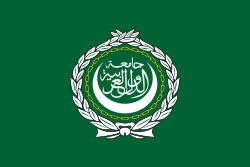This article has multiple issues. Please help improve it or discuss these issues on the talk page . (Learn how and when to remove these messages)
|
 | |
Arab League | European Union |
|---|---|
Arab League and European Union relations matured during the EU's evolution into a more political project than one focused on economic outcomes.
Contents

Organizational relations started in 2007, when the Arab League adopted a policy of reaching out to other regional organizations and significant economic partners, particularly the EU, ASEAN, China, India, Japan and South America.



